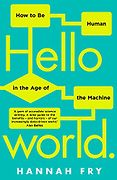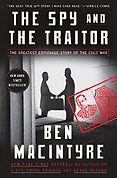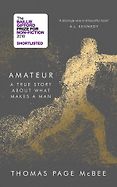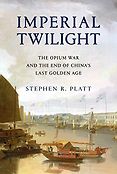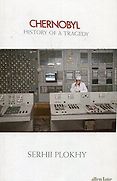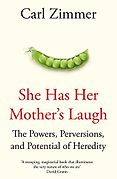Are these the very best nonfiction books of 2018?
We think so, definitely. I’ve judged several book awards over the years and I also run the Man Booker International Prize, which means that I sit in on the judging meetings. This prize was the very first one I ever judged in 2003, when it was known as the Samuel Johnson Prize. So over many years now, I’ve watched lots and lots and lots of panels of judges deliberate what makes a book really memorable.
I think that “memorable” is really quite an important word: we were looking for books that would still be read in ten years’ time, not quick flash-in-the-pan books, but books that had real durability, that really stick in your mind.
How do you go about narrowing down the choice? Do you know instinctively when you start reading a book whether it will be among the very top tier?
We considered 247 books, including the books that the judges called in. Each of the five judges has different specialties. They’re all big readers. They have a good idea of what’s being published in their field, what the big interesting books are likely to be. And yet, there are always surprises. We were looking for original research. We were looking for original thinking. We were looking for very, very fine writing.
Get the weekly Five Books newsletter
You know, very few books are very bad. Very few books are absolutely brilliant. Most of them are fine. They’re professional, they’re clear, but we were looking for something that really lifted a book above that. I think the word I’d use is ‘illumination.’ Illumination is an interesting word, because it’s been used about manuscripts since the Middle Ages, but it is as important to books now as it was 500 years ago. We were looking for books that create more light, not more noise.
How about we begin with Hannah Fry’s Hello World?
It’s about algorithms. Everybody knows algorithms exist, and we more or less know sort of what they’re used for, but most readers don’t have the full picture of how algorithms work and the many, many different fields in which they appear.
This is a cleverly structured book. I don’t know whether it was the author’s idea or whether she got good advice from the publisher, but it’s divided into different fields, like medicine and all sorts of other things that you can possibly think of in which algorithms will appear. She explains in incredibly clear language, with very, very good examples, just how pervasive the use of algorithms is. It’s a great book about our time.
Fry is an assistant professor of mathematics at University College, London. Do I need to have any background knowledge of maths or computer science
to enjoy the book?
No, absolutely not. It is incredibly clearly written. It always comes back to real examples. It’s not theoretical, although she does explain the theory of how it works. None of it, though, is beyond the average reader. It’s a completely fascinating read.
Next, Ben Macintyre‘s The Spy and the Traitor has been given an incredible endorsement by John le Carré, who said it’s “the best true spy story [he has] ever read.”
It’s the story of Oleg Gordievsky, who was probably the most important British spy in Soviet Russia since the Second World War. He was the only spy we ever had that we managed to get out of Russia and bring back to Britain alive. He’s an extremely intelligent man with a prodigious memory, who worked at a very senior level and was the provider of enormous amounts of information, all through the 1970s, the Reagan years, the Gorbachev-Reagan-Thatcher friendship, the development of glasnost, the collapse of the Soviet Union and the opening up of Russia. Although Gordievsky has written his own memoir about his years as a spy, he now lives under a new name in Britain. Nobody has ever interviewed all the British people who were involved in running the Gordievsky operation, until now.
Ben Macintyre has not had access to the MI6 archives, because they are sealed. But he has been allowed to interview absolutely everyone who worked on running Gordievsky, and it’s an incredible read. It’s like a truly rip-roaring piece of the absolutely best spy fiction.
I can think of a few people I think I’m going to give this one to for Christmas this year.
He’s written a lot of books, but I think this is probably his best one.
Thomas Page McBee’s book, Amateur: let’s discuss that next.
This was one of the real surprises, it just popped up. A little slim book by an American writer. Somebody who is transitioning—born female, becoming a man—decides that he wants to become a boxer, a competitive boxer, and that he is going to box in a match in Madison Square Garden, the only transitioning person to have ever done that.
It’s about his training, it’s about his transitioning, about the whole process of it. It’s also about the family he grew up in. It’s about why people box, why men box, why men are violent and what use they put it to. It was a really fascinating book, completely original. He uses memoir to make a wider point about masculinity and male violence.
Stephen Platt’s Imperial Twilight is a heavyweight history book—the story of the Opium War and the tailing off of China as a global power during that era.
This is probably the most elegantly written of all the books. For me, the most interesting part of it is the encounter between the West and the East in the form of British traders and British diplomats, and Imperial China. It’s really a story about us and the ‘Other’ and what happens between peoples when they make no effort to understand each other.
It’s a book that’s set over 200 years ago, but it is as important now, as a metaphor about today as it was about that particular situation.
With China in the ascendance again, very much one of the major global powers, I imagine—
Yes, it happens to be China, but it could be anywhere. What happens when groups of people, tribes of people meet other people and refuse to see any common humanity?
That sounds fascinating. Serhii Plokhy’s book Chernobyl: History of a Tragedy is also a work of history.
Here’s a story that we all grew up with. My generation can remember when it happened, 30 years ago. For much younger readers, it’s something that they will have heard about. What we’ve never really quite taken on board in this much detail is what was happening on the ground, both in the area immediately around Chernobyl, but also in Moscow: the different levels of power, how they dealt with this absolutely terrifying event, with people wanting to cover it up, to avoid blame, to try and save lives. But also having no ordered system for shutting down a disaster of this kind.
It was chaos, absolute chaos, and of course, there was an enormous cover-up, because there was so much face to be lost. The book unpacks every single detail of this extraordinarily human blunder and the massive consequences that it went on to have. So it’s a tough book. Very well written, very well researched, absolutely fascinating about the end of the Soviet empire.
Thank you. Finally, we have Carl Zimmer and She Has Her Mother’s Laugh, an exploration of heredity.
Carl Zimmer’s one of a handful of extremely good science writers, one of those people who are capable of taking an immensely complex subject and, without being patronising, without talking down to the reader in any way at all, presenting a very complex argument with a lot of different material in a way that’s both incredibly clear and uncompromising in its detail and its depth. It is about heredity: how heredity changes, how complex it is, about nature versus nurture. It is just a completely fascinating, up-to-date book about that kind of science.
Having judged and read so many nonfiction books in the past few months, do you come away with optimistic about the state of nonfiction today?
Do you know, I found it such a refreshing exercise, to be made to read at this speed, books of this length. It makes you realise quite what a miracle the book is.
It is absolutely extraordinary how many people set out to write a book, because they just can’t not write it. It becomes a lifetime’s obsession, which is what the best writing is for a period of time that you’re totally immersed in the project. The result is some quite extraordinary work, work that is structurally interesting, from a research point of view completely new, in terms of taking incredibly complex material and making it readable.
It’s one of the best ways of trying to understand the mad, crazy world that we live in. I’d say nonfiction is in very good shape in 2018.
Interview by Cal Flyn, Deputy Editor
December 22, 2018
Five Books aims to keep its book recommendations and interviews up to date. If you are the interviewee and would like to update your choice of books (or even just what you say about them) please email us at [email protected]
Five Books interviews are expensive to produce. If you've enjoyed this interview, please support us by donating a small amount.
